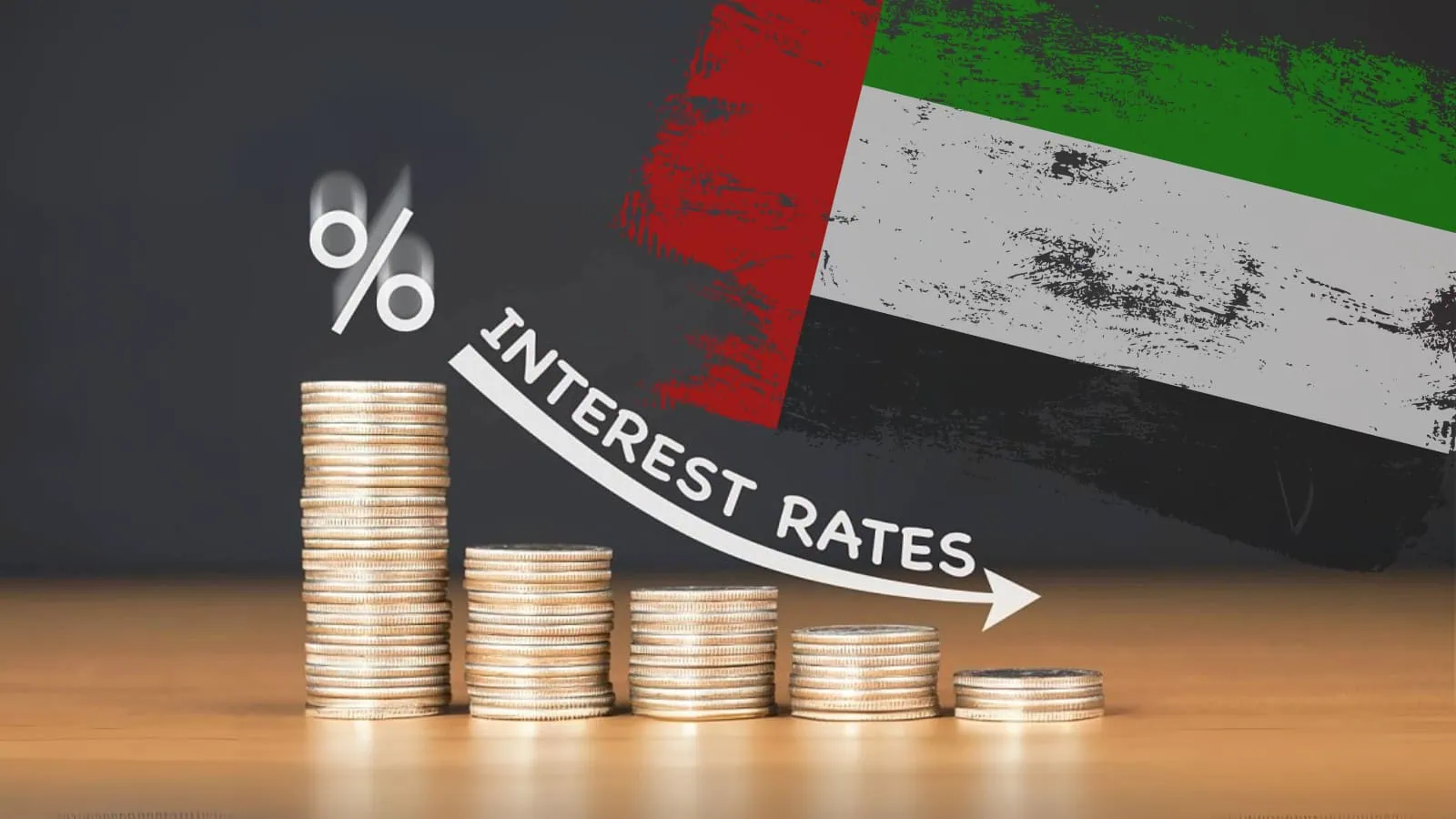September 22, 2025
The UAE Central Bank has reduced its base interest rate to 4.15%, following the US Federal Reserve's recent cut. This affects borrowing costs, savings returns, and investment strategies across the UAE.

On September 18, 2025, the Central Bank of the UAE (CBUAE) announced a 25 basis point reduction in its base interest rate, bringing it down from 4.40% to 4.15%. The decision follows the recent rate cut by the US Federal Reserve, reflecting the UAE’s commitment to maintaining the dirham’s peg to the US dollar and aligning monetary policy with global financial trends.
Impact on Borrowers The rate cut will directly benefit consumers and businesses by lowering borrowing costs. Individuals with variable-rate mortgages, personal loans, and credit cards may experience reduced monthly payments. Businesses can access cheaper financing for expansion projects, capital investment, and working capital needs. This is expected to stimulate sectors like real estate, automotive, retail, and construction, as both consumers and companies respond to more affordable credit.
Effects on Savers While borrowing costs decline, savers may see lower returns on traditional fixed deposits and savings accounts. Investors relying on interest income might need to adjust their strategies, possibly considering alternative assets such as stocks, ETFs, real estate, or precious metals to achieve desired returns. Banks may also introduce new savings products with better yields to attract depositors in the low-rate environment.
Investment Implications Lower interest rates often encourage investment in equities and real estate, as fixed-income instruments become less attractive. The UAE stock market may see increased inflows, while real estate developers could benefit from heightened buyer interest due to cheaper mortgage rates. Additionally, foreign investors may view the UAE as a more attractive destination for capital deployment because of its stable economic policies and regulatory alignment with global markets.
Economic Outlook This monetary policy adjustment highlights the UAE’s proactive approach to economic growth. By reducing rates, the Central Bank aims to boost domestic demand, encourage investment, and maintain financial market stability. However, authorities will monitor potential inflationary pressures closely. Overall, the move balances economic stimulus with responsible fiscal oversight, supporting the UAE’s Vision 2031 economic goals.
Global Context The UAE’s policy aligns with international financial trends, particularly the US Federal Reserve’s recent moves, demonstrating the country’s integration with the global economy. It signals to investors, businesses, and financial institutions that the UAE is a forward-looking financial hub prepared to adjust to global economic conditions while supporting domestic growth.
Practical Advice for Residents Residents should evaluate their loan structures to leverage lower interest rates and reassess savings strategies to mitigate the impact of reduced yields. Businesses should explore refinancing options and consider accelerated expansion plans to capitalize on lower financing costs. Investors may diversify portfolios to benefit from sectors likely to gain from the low-rate environment.